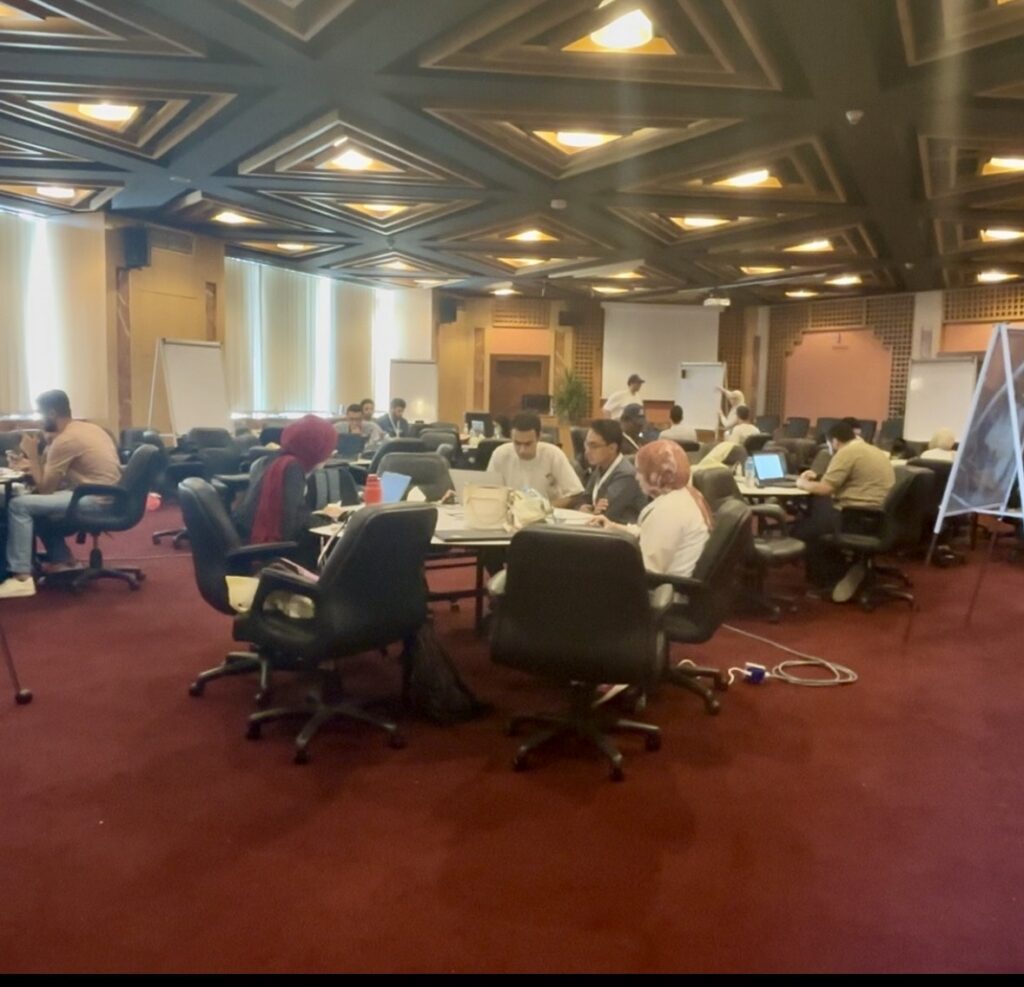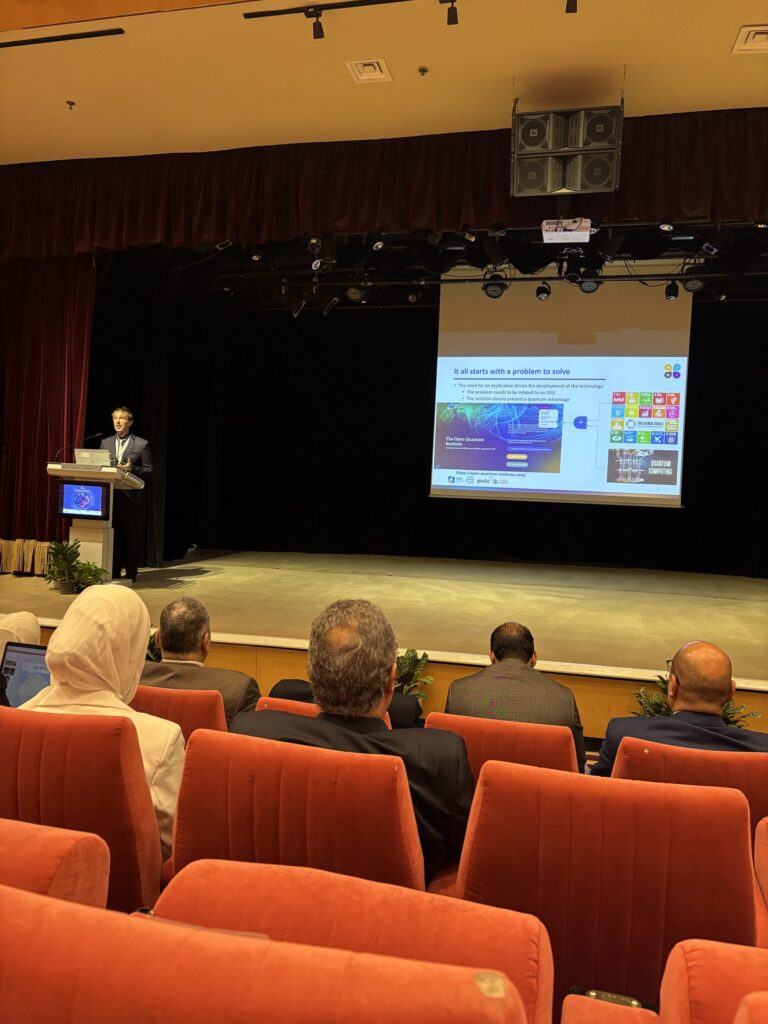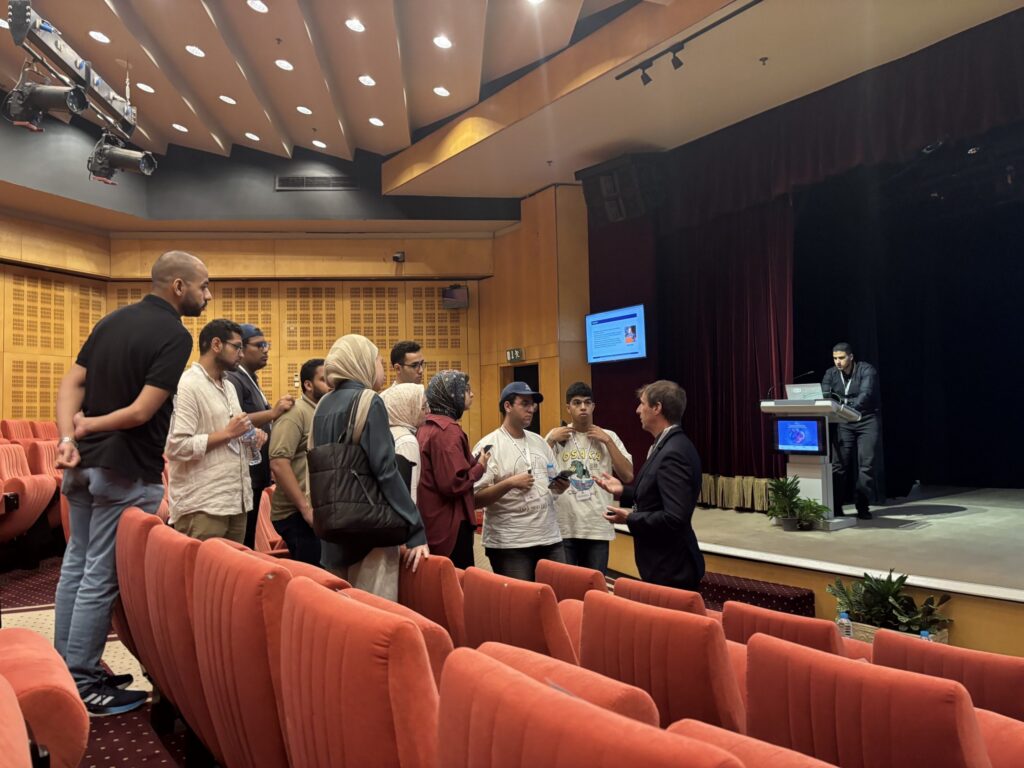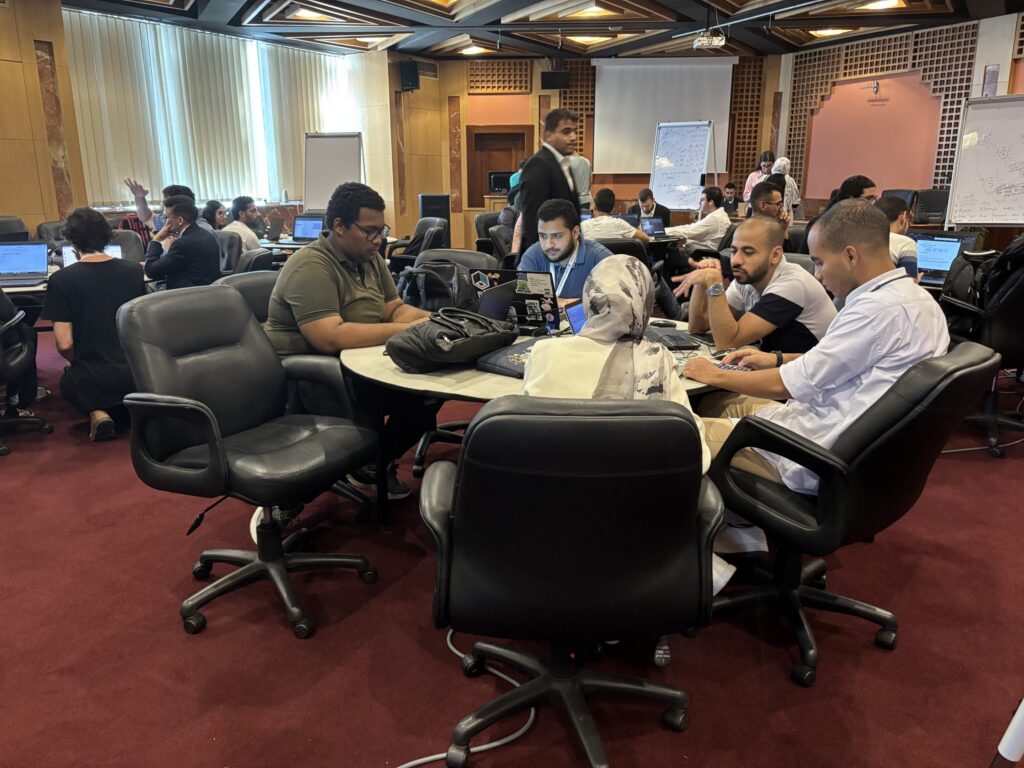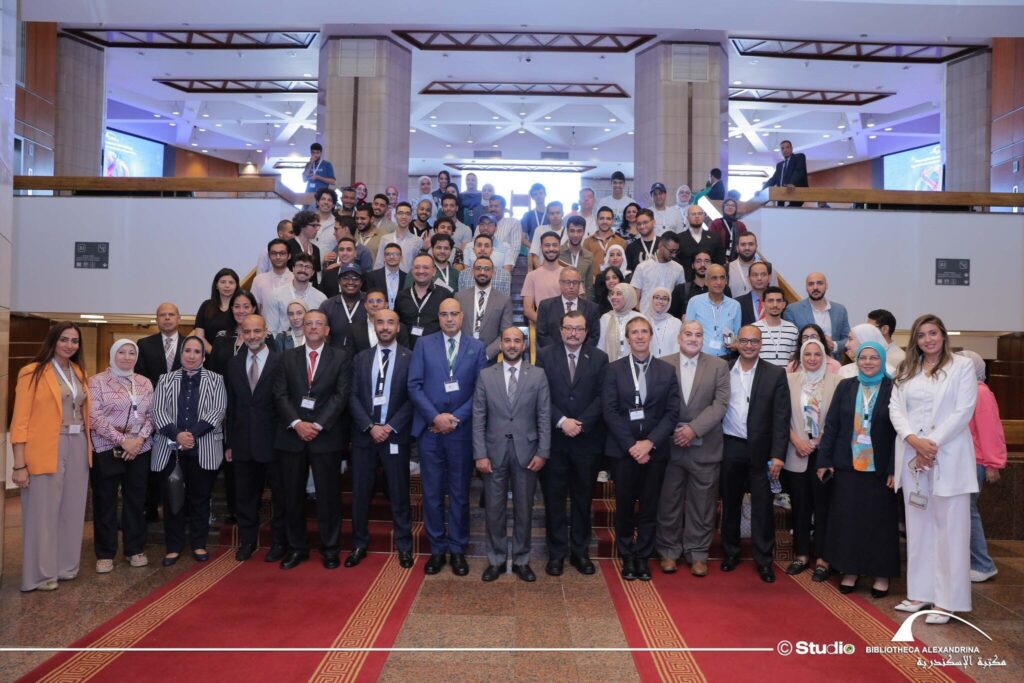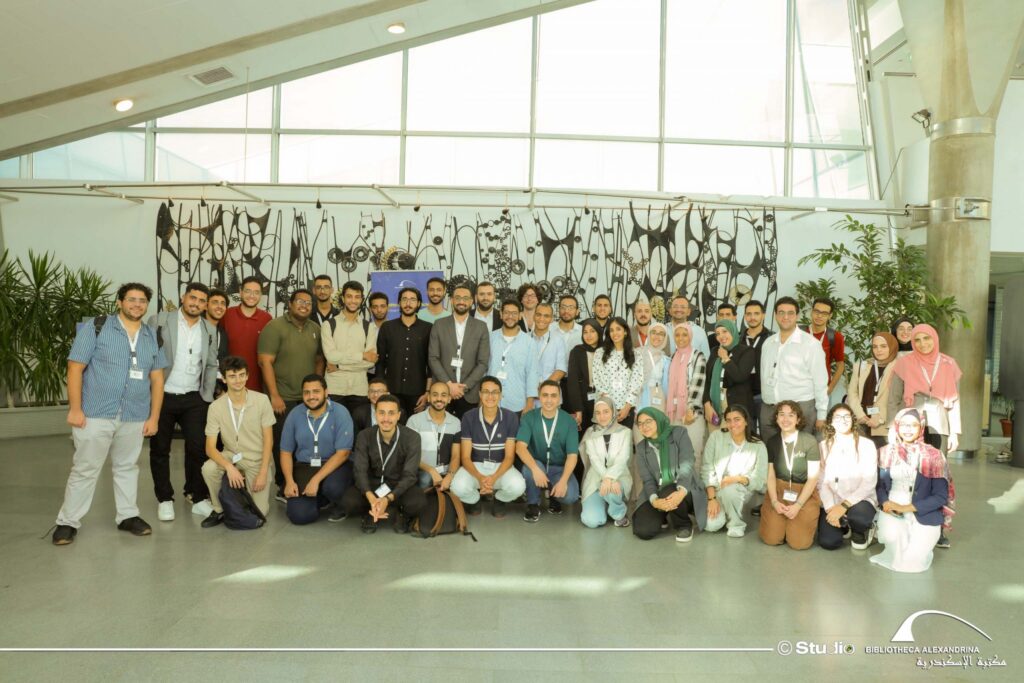Celebrating Egypt’s first-ever national quantum computing hackathon
19th September 2025
Article by Alexia Yiannouli
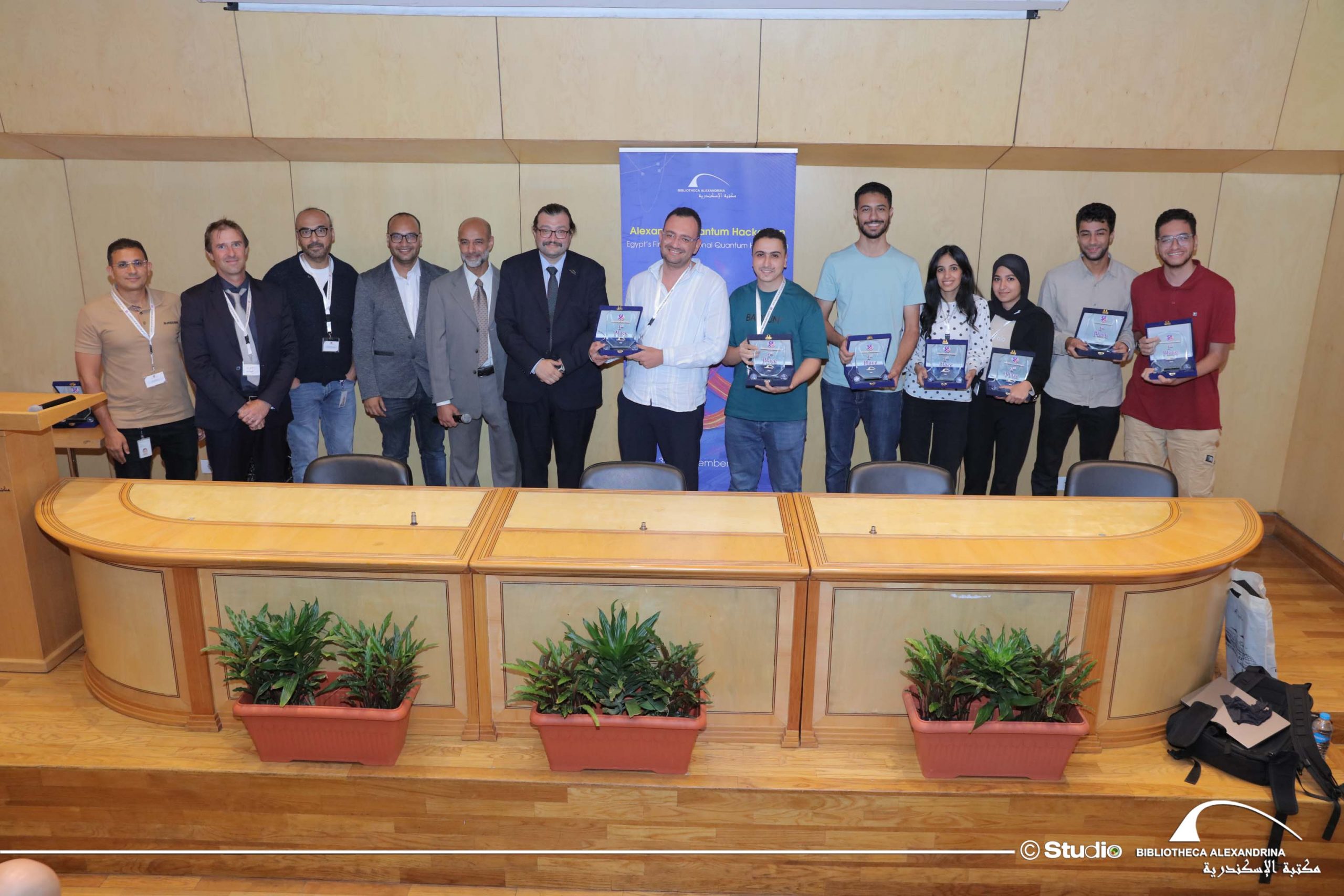
Photos by Bibliotheca Alexandrina
Last week, the Alexandria Quantum Hackathon took place against the historic backdrop of the Library of Alexandria (Bibliotheca Alexandrina) – marking the first-ever national quantum computing hackathon in Egypt.
From 3-5 September, over 50 students came together to explore how quantum computing can address real-world challenges and advance the UN Sustainable Development Goals (SDGs). Hosted by the Library of Alexandria, the hackathon was supported by OQI, iQafé and IBM Quantum.
Over the course of three days, students from diverse academic backgrounds worked together on SDG-focused challenges to investigate if quantum computing could provide innovative solutions.
Due to strong interest from students in other Arab countries, the hackathon took on a hybrid format, with teams from Algeria, Jordan and Morocco participating online. Teams worked together to tackle challenges exploring a range of quantum approaches, including optimisation and quantum machine learning:
Smart traffic optimisation
This challenge explored traffic and route optimisation, where teams were tasked with finding the most efficient path for an ambulance to transport five patients to a hospital, using quantum optimisation to minimise the overall distance travelled.
Parkinson’s disease diagnosis
This challenge involved applying quantum machine learning to medical diagnostics. Teams trained a model on a provided dataset for earlier detection of the disease, focusing on key evaluation metrics such as accuracy, precision and recall, with the aim of testing the approach on real quantum hardware.
Carbon capture simulation
Rooted in environmental chemistry and molecular simulation, this challenge focused on using a quantum algorithm to simulate the reaction between carbon dioxide (CO2) and ammonia (NH3), a reaction important in carbon capture technologies. Teams used a quantum algorithm to calculate the vibrational energies of the molecules and explore the possible reaction pathways.
All teams worked on identifying a classical approach to establish a baseline and developing a quantum model to compare results.
As the hackathon drew to a close, Qarbon Qapture were announced as the first-place winning team. Their project focused on CO2 as the primary driver of climate change, investigating how quantum computing could be used to capture CO2 from industrial emissions and convert it to a stable intermediate for urea fertiliser production.
The winning team was made up of:
Mohamed Nabil (mentor)
Ziad Tarek (mentor)
In preparation for the hackathon, all students completed a 10-day pre-hackathon workshop organised by QWorld, designed to equip students with the necessary skills to participate, with no prior knowledge of quantum computing needed. In the months prior to the hackathon, participants attended online workshops, using quantum computing platforms provided by qBraid.
Prior to the hackathon taking place, the Library of Alexandria, in collaboration with iQafé, ran monthly quantum lectures, weekly quantum lab sessions, a quantum computing summer school and a dry run hackathon, all contributing to preparing students for taking part in the hackathon.
The hackathon also featured a wide range of talks given by leading experts from across academia and industry, covering a wide range of topics, such as quantum education and ecosystem building, exploring quantum information systems and hardware and quantum enabling technologies. These sessions aimed to bridge the gap between theory and practice, giving participants a key overview of the quantum landscape.
During the event, Martin Gastal (Partnerships and Capacity Building Lead at OQI) had the opportunity to highlight the work we are doing at OQI towards developing inclusive and equitable quantum computing for the benefit of society – including the developing of SDG-focused use cases to tackle global challenges and our global capacity building efforts, through hackathons, regional events and the playing of the Quantum Diplomacy Game.
The Alexandria Quantum Hackathon marks a key milestone for quantum computing in Egypt, while also showing the importance of multistakeholder collaboration and inspiring the next generation of quantum scientists.
